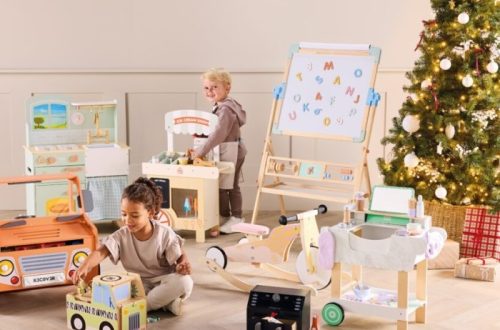Ever After High Dolls have become increasingly popular among children in recent years. These dolls, based on fairytale characters, have captured the imagination and creativity of kids around the world. However, what many people may not know is that playing with these dolls can have a significant impact on children’s emotional intelligence. In this blog post, we will explore the connection between Ever After High Dolls and emotional intelligence in kids.

What is Emotional Intelligence?
Before exploring the connection between Ever After High Dolls and emotional intelligence, it is helpful to define what emotional intelligence is. Emotional intelligence refers to the ability to recognize, understand, and manage emotions effectively. This includes the ability to identify and express one’s own emotions, empathize with others, and regulate emotional responses to different situations.
The Connection Between Ever After High Dolls and Emotional Intelligence
Ever After High Dolls can help children develop emotional intelligence skills in many ways. Here are some of the ways playing with these dolls can enhance children’s emotional intelligence:
Role-playing and Empathy
When children play with Ever After High Dolls, they often engage in role-playing activities based on fairytale scenarios. During these activities, children have the opportunity to step into different roles, express various emotions, and respond to different situations. By doing so, they develop empathy skills and learn to understand different perspectives and emotions.
Storytelling and Creativity
Ever After High Dolls come with their own unique stories and backgrounds, which can be an excellent opportunity for children to engage in storytelling activities. When children create their own stories and scenarios, they have the opportunity to explore different emotions, situations, and perspectives. By doing so, they can develop creativity skills and learn to express themselves in different ways.
Building Relationships and Social Skills
Playing with Ever After High Dolls can also help children develop social skills and build relationships. When children engage in role-playing and storytelling activities, they often play with other children, which can help them develop teamwork and cooperation skills. Additionally, playing with dolls can help children practice communication and problem-solving skills, which are essential for building strong relationships.
Regulating Emotions and Self-awareness
As children engage in role-playing and storytelling activities, they also have the opportunity to regulate their emotions and develop self-awareness skills. For example, through storytelling, children can explore their emotions and develop strategies for managing them effectively. Additionally, playing with dolls can help children practice regulating their emotions, such as expressing themselves appropriately and problem-solving in a calm and effective manner.
Final Thoughts
Overall, playing with Ever After High Dolls can have a significant impact on children’s emotional intelligence. By engaging in role-playing, storytelling, and imaginative play, children can develop empathy, creativity, social skills, and self-awareness. As they explore different emotions, situations, and perspectives, they can learn to manage their emotions effectively and develop strategies for coping with different challenges that arise in life.
It is important to note that while Ever After High Dolls can be a helpful tool for enhancing emotional intelligence in children, they are not the only way to develop these skills. Parents and caregivers can also encourage children to engage in other forms of imaginative play, such as building with blocks, drawing, or engaging in dramatic play. Additionally, parents can model emotional intelligence skills themselves, such as expressing and regulating their emotions effectively and empathizing with others. By doing so, children can learn from these positive examples and develop their emotional intelligence skills even further.
In conclusion, Ever After High Dolls can be a fun and engaging way for children to develop emotional intelligence skills. By engaging in role-playing, storytelling, and imaginative play, children can enhance their empathy, creativity, social skills, and self-awareness. While these skills are important for a range of life experiences, it is essential to remember that emotional intelligence is an ongoing process that requires continuous practice and growth. By providing children with diverse opportunities to develop these skills, parents and caregivers can help children build a strong foundation for emotional intelligence that will serve them well throughout their lives.


